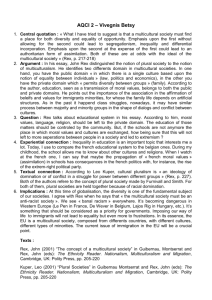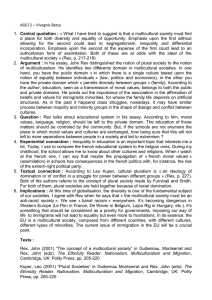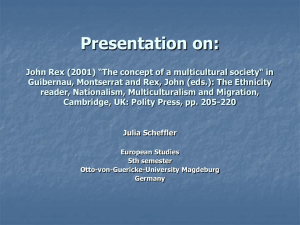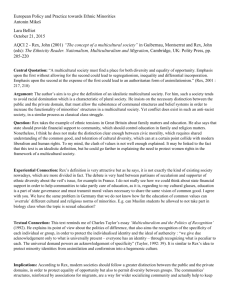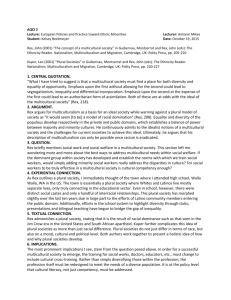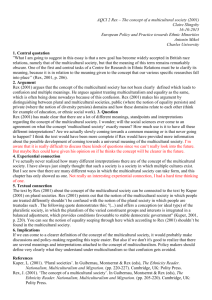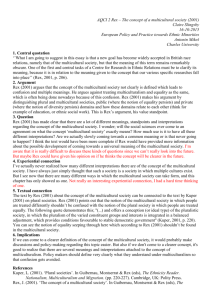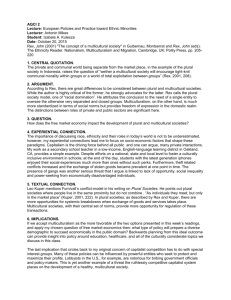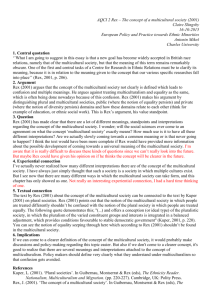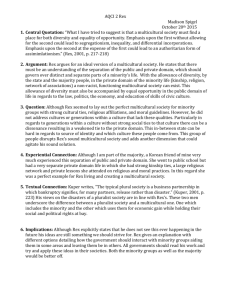European Policy and Practise towards Ethnic Minorities
advertisement
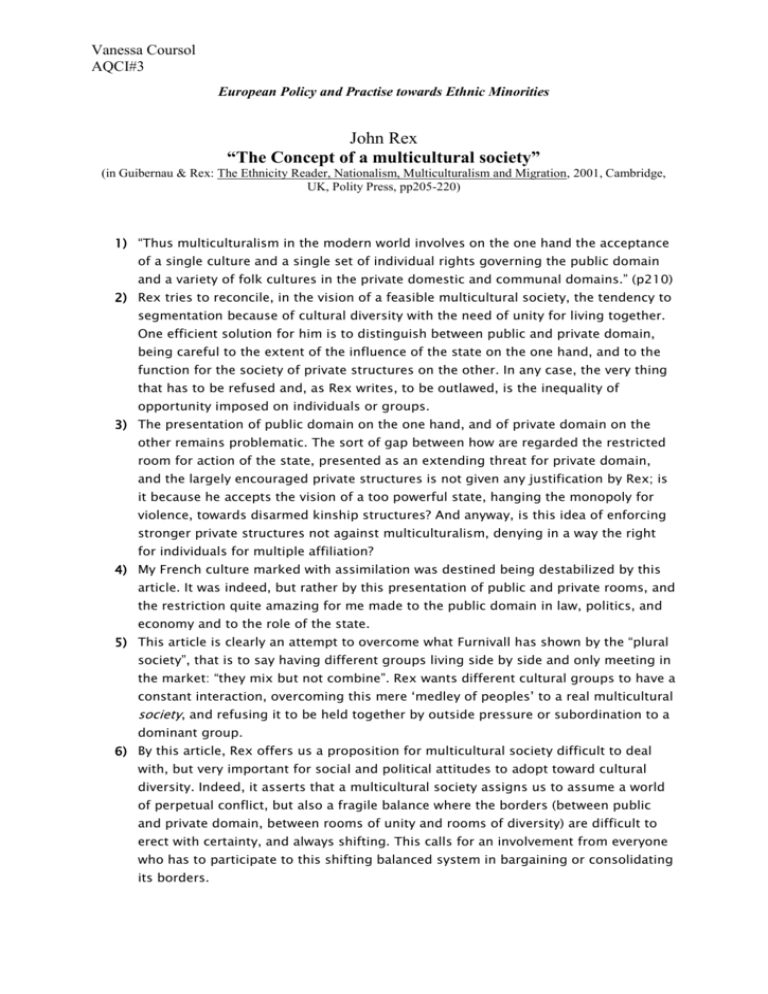
Vanessa Coursol AQCI#3 European Policy and Practise towards Ethnic Minorities John Rex “The Concept of a multicultural society” (in Guibernau & Rex: The Ethnicity Reader, Nationalism, Multiculturalism and Migration, 2001, Cambridge, UK, Polity Press, pp205-220) 1) “Thus multiculturalism in the modern world involves on the one hand the acceptance of a single culture and a single set of individual rights governing the public domain and a variety of folk cultures in the private domestic and communal domains.” (p210) 2) Rex tries to reconcile, in the vision of a feasible multicultural society, the tendency to segmentation because of cultural diversity with the need of unity for living together. One efficient solution for him is to distinguish between public and private domain, being careful to the extent of the influence of the state on the one hand, and to the function for the society of private structures on the other. In any case, the very thing that has to be refused and, as Rex writes, to be outlawed, is the inequality of opportunity imposed on individuals or groups. 3) The presentation of public domain on the one hand, and of private domain on the other remains problematic. The sort of gap between how are regarded the restricted room for action of the state, presented as an extending threat for private domain, and the largely encouraged private structures is not given any justification by Rex; is it because he accepts the vision of a too powerful state, hanging the monopoly for violence, towards disarmed kinship structures? And anyway, is this idea of enforcing stronger private structures not against multiculturalism, denying in a way the right for individuals for multiple affiliation? 4) My French culture marked with assimilation was destined being destabilized by this article. It was indeed, but rather by this presentation of public and private rooms, and the restriction quite amazing for me made to the public domain in law, politics, and economy and to the role of the state. 5) This article is clearly an attempt to overcome what Furnivall has shown by the “plural society”, that is to say having different groups living side by side and only meeting in the market: “they mix but not combine”. Rex wants different cultural groups to have a constant interaction, overcoming this mere ‘medley of peoples’ to a real multicultural society, and refusing it to be held together by outside pressure or subordination to a dominant group. 6) By this article, Rex offers us a proposition for multicultural society difficult to deal with, but very important for social and political attitudes to adopt toward cultural diversity. Indeed, it asserts that a multicultural society assigns us to assume a world of perpetual conflict, but also a fragile balance where the borders (between public and private domain, between rooms of unity and rooms of diversity) are difficult to erect with certainty, and always shifting. This calls for an involvement from everyone who has to participate to this shifting balanced system in bargaining or consolidating its borders.
